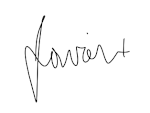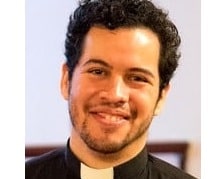The origin of existence is movement.
Ibn Al-Arabi, 12th century
The Easter season is now over. The Great 50 Days wrap up on the Feast of Pentecost, when we wear red as a reminder of the gift of the Holy Spirit, which appeared among the faithful as “divided tongues, as of fire” (Acts 2:3).
But there is one more celebration in store before we don the green of ordinary time. That feast is Trinity Sunday, which we will observe this coming week.
There are many, many ways to preach delightful heresies on such an occasion. I’m not too concerned with that, though. (A preacher’s not-so-subtle attempt to set a low bar as he prepares yet another Trinity Sunday sermon…) It is hard to wrap our heads around the mystery of the Trinity. We are, after all, ultimately talking about a God beyond human knowing, a being in whom all things hold and through whom all things came to be. To try to define God’s being is precisely the wrong place to begin, theologically-speaking. Rather, we begin with the great story: the evidence of God’s action in Scripture pointing toward the grandeur behind the veil. Beyond that, our attempts to describe God are mere approximation.
I am rather taken, however, by one way of talking about the Trinity that is encapsulated in an ancient word, perichoresis. The Greeks used this term to describe the mutual indwelling of the divine persons—how the Father, Son, and Holy Spirit are one and yet remain distinct from one another. It is as if to say that God’s very being is perpetual movement: a divine dance, of sorts.
This is the God we worship, an affluence of love binding God’s very self together. To know this God—the God who creates, redeems, and sustains; the God who is our parent, sibling, and friend—is to enter into relationship with a dynamic force. This is no divine clockmaker who set things in motion at the beginning of time and left the scene. This is a God who continues to reveal God’s self to us—and who invites each of us onto the dance floor, ready to draw us further up and further into the mystery of being itself.

—Fr. Javier

